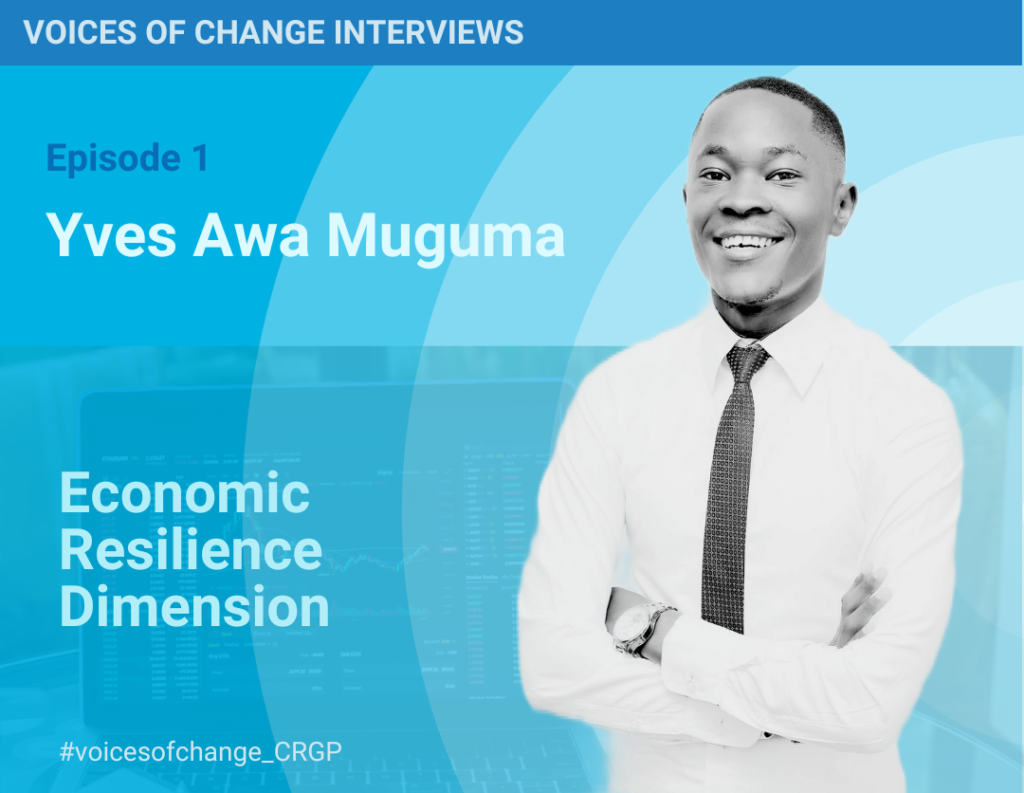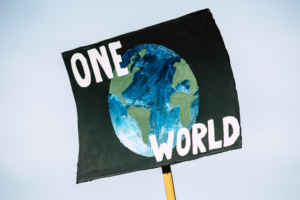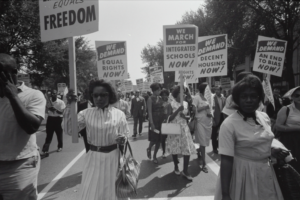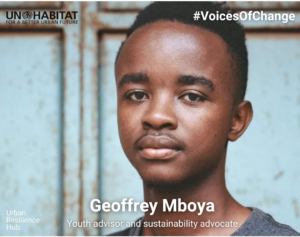In the context of our new social media campaign called ‘Voices of Change’, we are starting a series of interviews where we ask community members and leaders from around the world what resilience means to them and how they apply this concept in their endeavors. At the Hub, we understand urban resilience as the sum of four resilience dimensions: Economic, Social, Environmental, and Institutional.
Keeping this in mind, the first person we interviewed was Yves Awa Muguma, a young statistician and economist from the Democratic Republic of Congo. We invited him to share his experience as an active member of the Congolese community in issues relating to the Central African region’s development.
“An economy is resilient if in the event of a shock, in the event of an unforeseen situation, it is able to adapt to this shock, first in the short term, but also in the medium and long terms,” states Yves.
According to the World Bank, the Democratic Republic of Congo is the largest Sub-Saharan African country. It is an extremely rich country when counting its natural resources: it has the world’s second-largest rainforest, minerals such as cobalt and copper, the potential to generate electricity through water that could feed the entire country, extensive arable land, and great biodiversity.
While the country holds an expansive variety of natural resources, it suffers economically, according to Yves. “Congolese economy is mainly extractive and mining. In terms of agricultural production, the DRC imports almost everything, which means that their resilience capacity is low because, in the event of an external shock, the economy has difficulty adapting.”
Moreover, Yves explained that:
“In the DRC, the [small existing] agricultural production is not even accessible to the populations who need it. In certain regions of the DRC, some agricultural products, such as flour, rot due to a lack of road infrastructure, to transport the flour from the point of production to the point of consumption.”
This shows how the low economic resilience of the country is directly linked to the low urban development, where a weak network of highways and poor infrastructure affect the economic performance of DRC.
Data from the World Bank points out that DRC is one of the five poorest nations in the world. When asked how has rapid urbanization been affecting his community, Yves asks himself: “Is it urbanization that has caused social problems and shocks, or is it the lack of urbanization in areas that are not urban? Because for me, urbanization should normally be a given for everyone. That is to say, normally, all populations should find themselves in slightly more urbanized conditions.”
For instance, he develops: “The provincial city of Kinshasa, capital of the DRC, is already a city which has more than 15 million inhabitants, this has created so many problems such as traffic jams, vagrancy, dirt… Because everywhere is crowded and everyone wants to be in the city center.”
According to the World Bank’s 2023 publication, Kinshasa is expected to be Africa’s largest megacity by 2030. However, it struggles with major development obstacles, an inefficient transportation system, poor urban planning, and social exclusion. Therefore, Yves asserts: “It is the lack of urbanization which is, for me, the problem in rural areas in the DRC.”
Yves’ family is from the Eastern area of Congo, where war has left more than 10 million deaths, 7 million internally displaced people and more than 2 million women raped since 1996. “My family knows what we call war, knows what we call refugees, knows what we call fleeing into the battlefields…”, says Yves.
Like many young people in DRC, Yves grew up seeing this as a reality in his life. However, unlike many, he felt the urge to act and change the situation of his country.
“I grew up with this awareness and this desire to participate in the development of my country.”
Thus, Yves found on LinkedIn a platform where he could share his beliefs and educate his network through short articles where he communicates on the current situations his country and the Central African Region face regularly.
Yves has also been actively engaged in looking for solutions to the issues his country faces throughout his studies. He had the opportunity to be an intern for UNECA in Yaoudé, Cameroon, for seven months in 2022. This experience opened many doors for him, allowing him to invest even further in his passion for analyzing the development of the Central African region. As a matter of fact, he participated in a study to understand how DRC can transform the natural capital of the Congo Basin into productive capital. The goal was to investigate how the countries of Central Africa are able to make their natural capital profitable.
At the Hub, we strongly believe in the potential that achieving urban resilience brings to territories around the world. When proactive community members such as Yves Awa Muguma act and push debates on pressing topics, it gives space for change. His initiative and hard work toward the growth and progress of his country are admirable. Amplifying powerful voices is our goal in this campaign.






